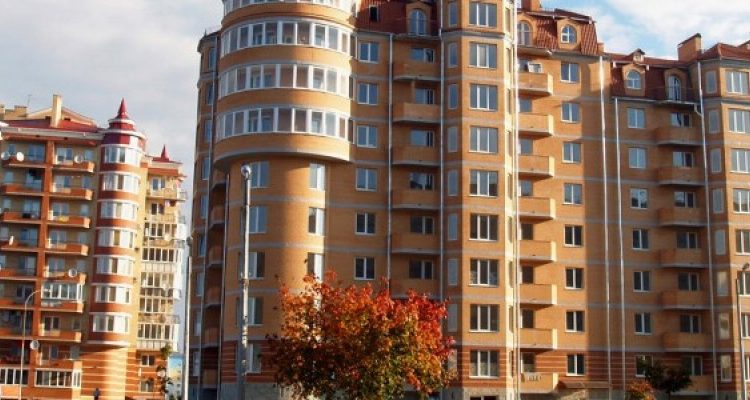Can a foreigner own housing in Kazakhstan?
Unfortunately, Kazakhstani legislation allows a foreigner to own housing only if such a person permanently resides in Kazakhstan.
Thus, Article 9 of the Law of the Republic of Kazakhstan “On the Legal Status of Foreigners” stipulates that foreigners can own housing in the Republic of Kazakhstan (with the exception of temporarily residing foreigners).
The same is stated in the response of the Minister of Justice of the Republic of Kazakhstan dated July 7, 2010 to the question dated June 28, 2010 No. 44193 (e.gov.kz).
However, I have a question for our legislators: why does such a restriction exist? What function does it carry? What is the point of it?
After all, even the Land Code of the Republic of Kazakhstan does not prohibit foreigners from owning land plots provided for development or built up with industrial and non-industrial, including residential, buildings (structures, facilities) and their complexes, including lands intended for servicing buildings (structures, facilities) (clause 4, Article 23 of the Land Code of the Republic of Kazakhstan).
It turns out that a foreigner can own a land plot (for example, for individual housing construction), but he cannot own a residential building built on such a land plot?
This is nonsense.
And then, why is there such a ban at all?
From an economic point of view, granting foreigners the right to purchase housing in Kazakhstan can stimulate the construction industry in Kazakhstan, ensure an influx of money into the domestic economy. After all, housing is a product that can be sold abroad (in a sense, exported, receiving money from abroad for this), although it remains in the country.
It is strange, but for some reason neither our legislators nor the Ministry of National Economy of Kazakhstan see or do not want to see this obvious fact.
Moreover, even despite the creation of the Eurasian Economic Union (a more integrated union), neither citizens of Russia, nor citizens of Belarus, nor citizens of other EEC states can own housing in Kazakhstan.
Whereas, for example, in Russia and Belarus, foreigners can easily own real estate, including housing.
There is no such ban in most countries of the world (including European countries, the USA, Turkey, etc.).
And one more aspect, which, in my opinion, indicates a significant flaw in this prohibitive legal norm.
Article 2 of the Law “On the Legal Status of Foreigners” provides that foreigners in the Republic of Kazakhstan are persons who are not citizens of the Republic of Kazakhstan and have evidence of their belonging to the citizenship of another state.
As follows from Article 4 of the same Law, foreigners who have received permission and a document for the right of permanent residence in the Republic of Kazakhstan in the manner determined by the Government of the Republic of Kazakhstan are recognized as permanent residents in the Republic of Kazakhstan, and foreigners who are in the Republic of Kazakhstan on another legal basis, as well as those recognized as victims as a result of the commission of acts in their relations that are recognized as serious or especially serious crimes in accordance with the Criminal Code of the Republic of Kazakhstan, are considered to be temporarily staying in the Republic of Kazakhstan.
Thus, from the analysis of the specified legal norms it follows that there are three types of foreigners:
— foreigners permanently residing in the Republic of Kazakhstan;
— foreigners temporarily staying in the Republic of Kazakhstan;
— foreigners who are not in the Republic of Kazakhstan at all.
Can the third category of foreigners own a home (apartment, individual residential building, apartments, etc.)?
Let’s look again at how paragraph two of Article 9 of the Law “On the Legal Status of Foreigners” sounds: foreigners may own housing in the Republic of Kazakhstan (with the exception of temporarily staying foreigners).
It turns out that only the second category of foreigners (temporarily staying) cannot own housing.
Paradoxically, the correctness of this position is confirmed in the response of the Minister of Justice of the Republic of Kazakhstan dated December 13, 2012 to the question dated December 6, 2012, No. 177597.
And if, for example, a foreign person, being, say, in Belgium, wants to buy an apartment or a residential building in Kazakhstan without coming here (for example, through an attorney), then the law de jure (and the Minister of Justice of the Republic of Kazakhstan agrees with this) does not prohibit such a person from owning such housing in this case.
Although, I am sure (and practice confirms this) that despite this, not a single notary in Kazakhstan will risk drawing up a contract of sale of an apartment with a foreign citizen who does not have a residence permit in the Republic of Kazakhstan, fearing to lose his license.
And the law is generally silent about whether a stateless person can own a home.
Having analyzed the aforementioned legal norms, I come to the unambiguous conclusion that the wording of Article 9 of the Law “On the Legal Status of Foreigners” requires careful revision, both from an economic and legal point of view.

